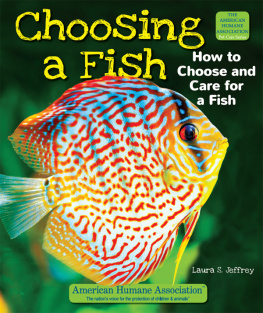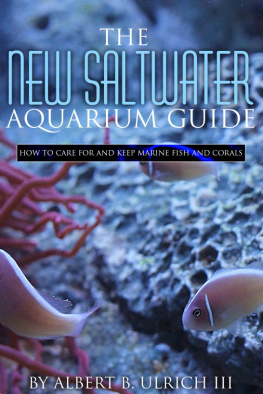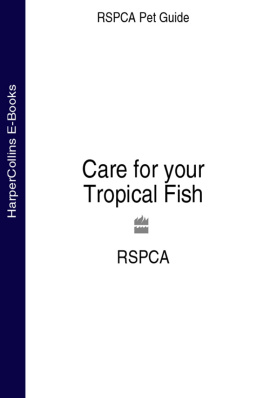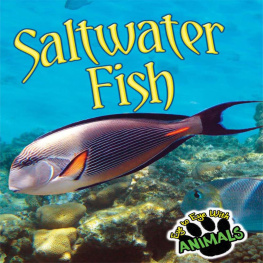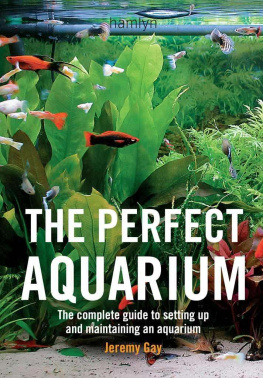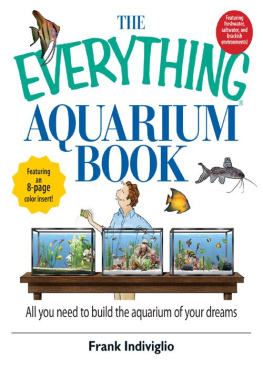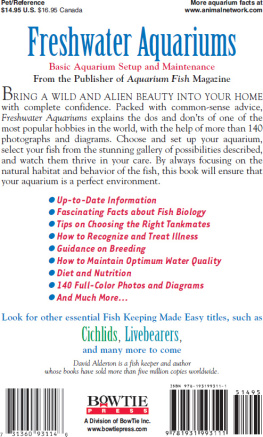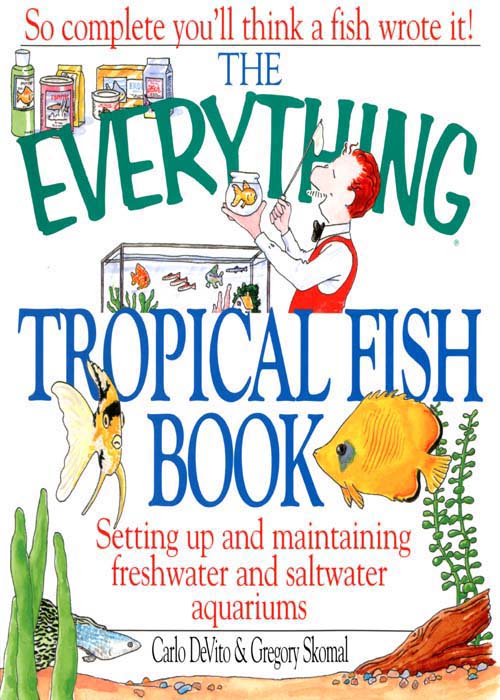THE

TROPICAL FISH
BOOK
Carlo DeVito & Gregory Skomal

Copyright 2000, F+W Publications, Inc.
All rights reserved. This book, or parts thereof, may not be reproduced in any form without permission from the publisher; exceptions are made for brief excerpts used in published reviews.
An Everything Series Book.
Everything and Error! Hyperlink reference not valid. are registered trademarks of F+W Publications, Inc.
Published by Adams Media, an F+W Publications Company
57 Littlefield Street, Avon, MA 02322. U.S.A
www.adamsmedia.com
ISBN: 1-58062-343-3
Printed in the United States of America.
J I H G F E D
Library of Congress Cataloging-in-Publication Data available upon request from the Publisher
This publication is designed to provide accurate and authoritative information with regard to the subject matter covered. It is sold with the understanding that the publisher is not engaged in rendering legal, accounting, or other professional advice. If legal advice or other expert assistance is required, the services of a competent professional person should be sought.
From a Declaration of Principles jointly adopted by a Committee of the American Bar Association and a Committee of Publishers and Associations
Illustrations by Barry Littmann and Kathie Kelleher
This book is available at quantity discounts for bulk purchases. For information, call 1-800-872-5627.
Visit the entire Everything series atwww.everything.com
Table of Contents
Chapter One 
The Freshwater Tropical Aquarium
Chapter Two 
Setting Up the Aquarium
Chapter Three 
Goldfish and KoiIntroduction
Chapter Four 
Ponds and Water Gardens for Goldfish and Koi
Chapter Five 
Freshwater Tropical Fish
Chapter Six 
Things Freshwater Fish Have in Common
Chapter Seven 
sSaltwater Tropical Fish
Chapter Eight 
Resources
Introduction
You cant pet a fish. You cant take it for a ride in a car. You cant put a bandanna around its neck and call it Butch and bring it to college with you. Taco Bell and Red Dog Beer dont have catchy ads using fish as pitchmen. You cant teach it to repeat dirty words when your mother isnt around. When your boyfriend or girlfriend leaves you, your fish will never snuggle with you and make you feel better. Of course, fish dont shed on the couch or stain the carpet, either.
But in some respects, owning fish is about more than owning a dog or cat. I think it is important to understand that becoming an aquarist isnt really about keeping fish; it is about understanding and sustaining an ecosystem. It is about understanding the interaction of species and communities.
Like most people, I became fascinated with fish as a kid. In my case, it was when my parents brought home a goldfish that we had won at a local fair. After throwing a Ping-Pong ball into a crowded mountain of little goldfish bowls, we had brought home our smooth, flashy, golden trophy. I was thrilled. I was fascinated, and loved to watch it swim around and wait for food, or react when the bowl was moved or new things were placed near it on the counter. My mother was no fan of this new creature. It was yet another new pet she was responsible for, aside from the dog I had always promised to walk and feed, but never did, and the injured squirrel I had found and insisted we save.
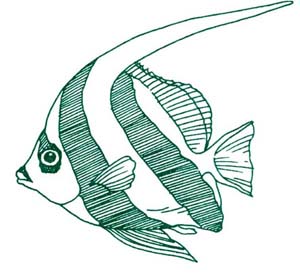
Greg Skomal, my co-author, and I met when I was in fifth grade and he in sixth. Like other children our age, in the summers, bored with endless days of playing baseball, swimming, and capture the flag, we went to a small pond nearby. There with his brother Burt and another friend, Condo, we tried to catch frogs, turtles, and assorted wild fish, while avoiding snakes, water rats, and groundskeepers. This pond was on a golf course, and we knew for a fact that they were none too fond of their new environmentalists. This, of course, made it all the more fun. We had in fact discovered a new world, far more fascinating than Marlon Perkins Wild Kingdom ever showed us. It was real and up close, if not just a little less dangerous.
While we had already started to keep community tropical fish tanks, this gave us a fun new way of exploring the world. We brought home a huge array of sunnys, minnows, perches, and other wild fish and put them in the tank. There we watched them interact with the other fish. It was fascinating. While they were not nearly as pretty as some of the other fish, they were all the more intensely watched, because they were real fish, not purchased from pet stores, but daringly captured from the dangerous wilds of Connecticut golf courses.
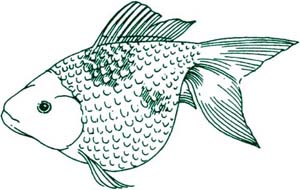
Such was our introduction into the hobby of fishkeeping. Each of us moved forward, one ahead of the other, keeping more and more interesting fish. We all had community tanks, housing schools of neons, angelfish, swordtails, and various odd catfish. Then Greg moved up, as we perceived it, keeping wild fish in his tank. We all followed suit. Then he went on to some of the more incompatible fish, like oscars, Jack Dempseys, firemouths, and other cichlids. Then it was on to the mother of all fish tankssaltwater.
It seems mean now, but I remember watching angelfish gang up on a group of other fish, and then watch a Siamese fighting fish chase the angelfish. We stood in horror as we watched the oscars dine first on food pellets, then on feeder goldfish. We experimented with tubifex worms and earthworms. We learned about chemistry, biology, and, in the long term, I think, learned many valuable lessons that went beyond the scope of just a hobbyist.
I had never enjoyed science in school, and didnt think of myself as a scientist. But, in setting up filters, learning how water is purified, learning about plants and how they are valuable to fish life, why algae is both good and bad, what nitrates are, and how babies are born to egg-layers and live-bearers, I became a participant in a mesmerizing show of natures force and vibrancy. Fishkeeping was a crash course in how life works and an interesting one at that. Understanding these elements meant the difference between being able to keep first goldfish and then more interesting species. And in the end, I realized that many of us understood a lot more science than we thought we did.




